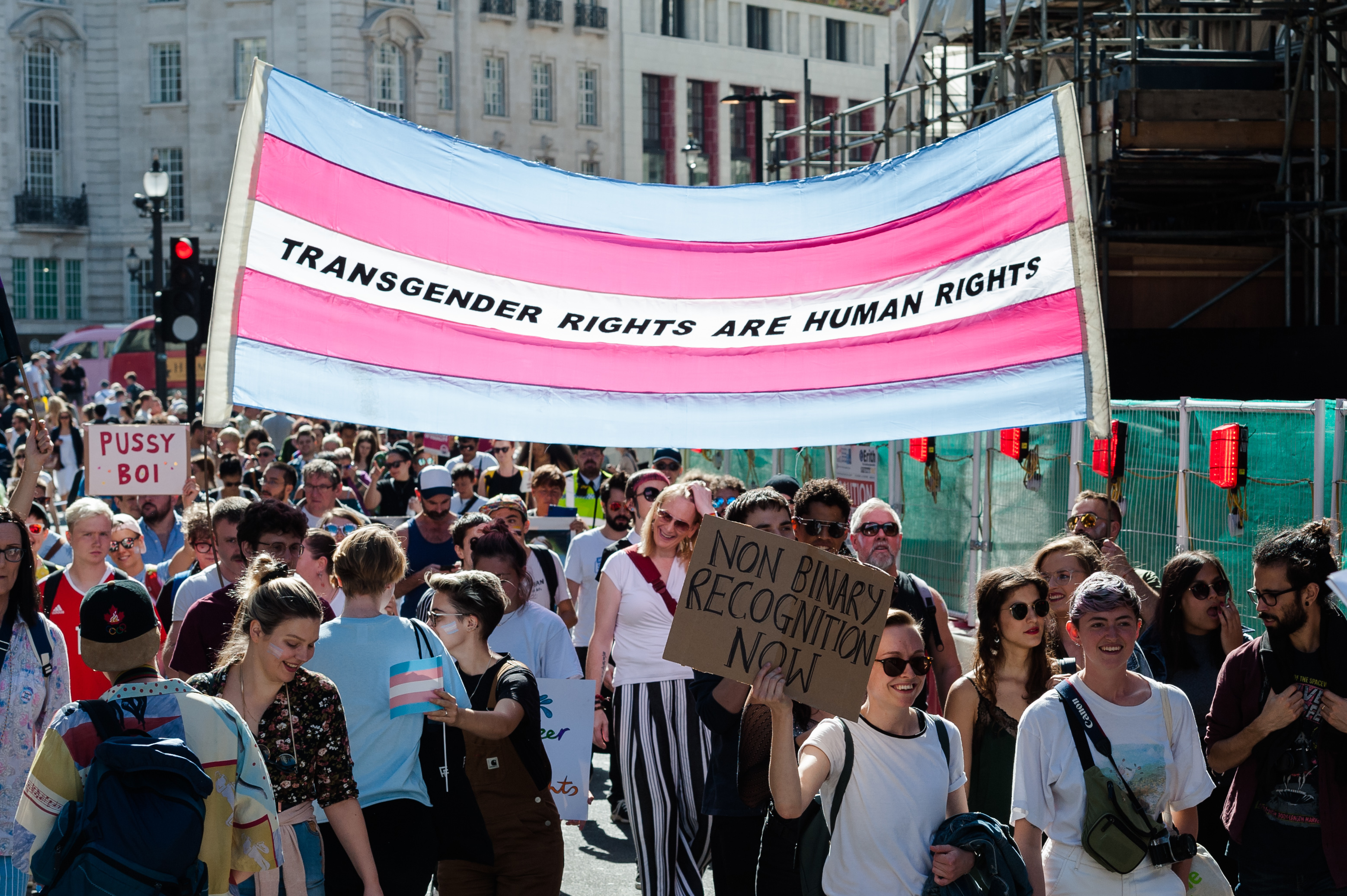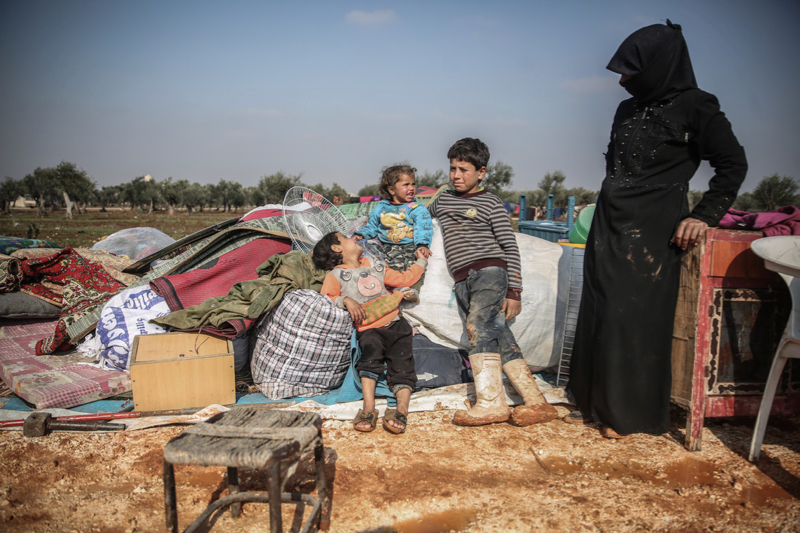Syria is back in the headlines and this time observers predict endgame. After nine years of civil war, the Syrian army is closing in on its opponents in Idlib, north-western Syria. The humanitarian crisis – 800,000 people displaced since 1 December according to UN estimates – once again beggars belief. In freezing winds, rain-soaked refugees supporting the elderly, carrying children and a few possessions, struggle towards the Turkish border. But Turkey has already accepted 3.7 million displaced Syrians. Their camps are swamped, the borders are closed.
Angela Merkel’s authority faltered when she declared Germany open to refugees. Opposition was fierce. David Cameron’s government was far more circumspect. Britain would take 20,000 refugees over 5 years under the Vulnerable Persons’ Resettlement Scheme (VPRS). And last year it was announced that 5000 to 6000 more would be added – the exact numbers depending on factors including "suitable accommodation being provided by Councils". And there is the rub. It has largely been left to Councils to speak up and make an offer. Overcrowded boroughs, however, have no incentive to try and accommodate new-comers when they already have hundreds of families languishing in tiny bed-sits.
And this is where groups such as ours, Refugees Welcome in Richmond (RWinR), come into the story. Who doesn’t remember Alan Kurdi and the heart-breaking pictures of a tiny body lying drowned on a Mediterranean beach in September 2015? For months we had read about the refugee crisis erupting onto the shores of Greece and Italy. Now an outpouring of sympathy easily raised the thousand signatures needed to guarantee a council debate in Richmond upon Thames. And the outcome? More discussion and a pledge of support – if the small group still persisting with the questions could find accommodation in the private sector. The scheme would kick in as soon as such accommodation was approved by the council. Rent would be paid by the Home Office through the council.
Over fifteen months, RWinR gathered for meetings, held awareness events, fundraised – and searched for accommodation down every imaginable avenue. Progress stalled and members wearily trudged on, searching for solutions. Then, suddenly, an almost miraculous opening: a Catholic charity, Caritas Westminster, offered two houses in the borough, in excellent condition and at affordable rent. UNHCR selected two families and in due course they arrived at Heathrow. The Council appointed an Arabic speaking officer to help them settle in and they were given every help to find the nearest shops, to sign up with a GP, to register the children for schools and the parents for free language classes.
Perhaps this looks like job done. The families were here, housed and receiving official, council assistance. RWinR was poised to continue the housing search. We didn’t see it like that, however. We were keen to visit and make friends. The children had no books or toys; the stairs needed a safety gate; the gardens were raw with mud and brambles. A lively bush telegraph soon enlarged the support network of Arabic speakers and established some helpful friendships. But these contacts also alerted RWinR to needy refugee families already living in the UK. They often have poor English and difficulty in finding work or managing everyday problems: the broken fridge; the child without the trainers required for school. And the not-so-everyday when a family that had worked hard to find their own accommodation was ejected onto the pavement for daring to complain that the roof leaked.
It is heart-warming to receive offers of clothing and furniture. It is almost more touching to be offered free tickets for the Richmond pantomime; cheap entry to Kew Gardens; free use of a church hall with lots of help for a New Year party and a generous cheque from a neighbour that will mean we can put fundraising on the back burner and get on with weekly visits. Three years into the scheme we are now befriending nine families; the pool of potential new volunteers has not dried up even though many of the original team have left. And we are rewarded far beyond our deserts by the constant welcome, the baklavas and Arabic coffee, the hugs and the smiles. Jews, Christians and Baha'is as well as those of no faith have made lasting friendships with Muslims and all work harmoniously together.
This may appear to paint a win-win picture. But the VPR scheme for 20,000 individuals provides just one drop of succour in the sea of human misery experienced by Syrian refugees and doesn’t touch on those from Yemen or Libya. There is much greater need to face up to the deprivation and hardship of the refugee camps. Even considered at the most basic and selfish level, disaffected children are growing up with almost no access to education and being brutalised by camp conditions. They could become a threat far beyond the Middle East. Our scheme offers a tiny plaster on the national conscience.
Under the present government, the aid budget is threatened. “Downing Street plans to change the rules so funding can be spent on initiatives that benefit Britain as well as the developing world,” reports Lucy Fisher in the Times. This could include imaginative schemes to help build decent villages, respecting human dignity, close to the home country and local culture. Refugees would live and work in some comfort while they wait for the conflict to end. They would receive the materials to put solid roofs over their heads and sanitary equipment to install drains. Incentives might be offered to enable older, retiring Brits to give their experience and services to education and medicine in the camps. Anne-Marie Trevelyan, the newly appointed international aid secretary, has declared her interest in the poverty of children in the North East of England. An excellent start. But much still needs to be done. It does not have to be either or, and we will continue our work for as long as we are able, and help as much as we can to make a difference.
Elizabeth Byrne Hill is senior lecturer in Drama (retired) at St Mary’s University, Twickenham. Founding member of Refugees Welcome in Richmond and befriending team leader.



 Loading ...
Loading ...
What do you think?
You can post as a subscriber user ...
User comments (1)
Sometimes the word spreads slowly as it spreads widely. I am at least the third reader of this issue, and it is a topic that interests me. I would be interested in knowing what the response has been and what conclusions or recommendations have emerged.